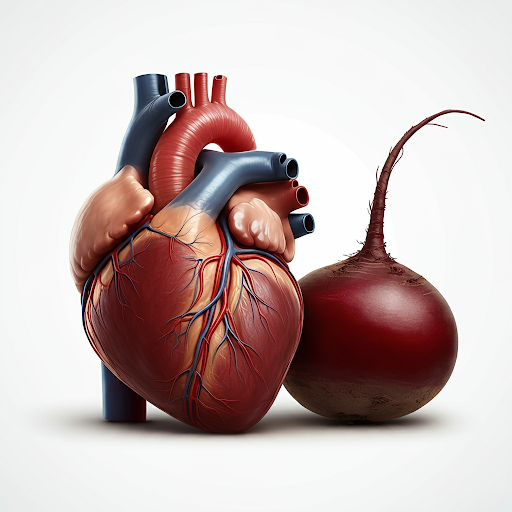
Does a Beet a Day Keep Heart Disease Away? New Research Shows Promise for Postmenopausal Women
Research Overview
A groundbreaking study from Penn State University, published in June 2024 in Frontiers in Nutrition, provides compelling evidence that beetroot juice could be a natural solution for improving cardiovascular health in postmenopausal women. Led by Professor David Proctor and Dr. Jocelyn Delgado Spicuzza, this research offers hope for women seeking non-pharmaceutical approaches to heart disease prevention.
Key Study Details
- Participants: 24 postmenopausal women in their 50s and 60s
- Duration: One week of daily consumption
- Dosage: Initial dose of two 2.3-ounce bottles, followed by one bottle daily
- Design: Double-blind study with nitrate-free beetroot juice as control
The Science Behind Beetroot's Benefits
The effectiveness of beetroot juice lies in its high nitrate content, which the body converts to nitric oxide. This process is particularly significant for postmenopausal women because:
- After menopause, women stop producing estrogen, which normally helps maintain nitric oxide levels
- Nitric oxide helps blood vessels expand, improving blood flow
- Plant-based nitrates (unlike those in processed meats) can be converted to beneficial nitric oxide by the body
Significant Findings
Immediate Benefits
- Improved blood vessel function
- Enhanced blood flow
- Benefits observed in both early and late postmenopausal women
Long-term Implications
- Potential reduction in heart disease risk
- Safe alternative to hormone therapy
- Beneficial for women regardless of time since menopause
Practical Applications
The study suggests several practical considerations for women interested in incorporating beetroot juice into their health routine:
- Daily consumption may be necessary for optimal benefits
- Each serving provides nitrate equivalent to three large beets
- Can be used as a complementary approach to existing cardiovascular health strategies
Advantages Over Traditional Treatments
- Natural alternative to pharmaceutical interventions
- No known time restrictions (unlike hormone therapy)
- Safe for both early and late postmenopausal women
- No increased risk of cancers or stroke
Research Impact
This study is particularly significant because:
- Most women spend approximately one-third of their lives in postmenopause
- It offers a safe, natural intervention for cardiovascular health
- The research won recognition at the Mid-Atlantic American College of Sports Medicine
- Participants showed enthusiasm for continuing beetroot juice consumption after the study
Future Directions
While the results are promising, several questions remain:
- Optimal dosing frequency and amount
- Long-term effects of sustained beetroot juice consumption
- Potential interactions with other cardiovascular medications
- Cost-effectiveness as a preventive measure
Conclusion
While it might be premature to say that "a beet a day keeps heart disease away," this research provides strong evidence that beetroot juice could be a valuable tool in protecting postmenopausal women's cardiovascular health. The natural, non-pharmaceutical approach offers a safe and potentially effective way to support heart health during a critical period of increased risk. As some clinicians are already recommending beetroot juice for blood pressure management, this research adds another compelling reason for postmenopausal women to consider incorporating this supplement into their daily routine.
➡️What are you waiting for? Boost your health with PureClean Beet!
Research Credits
This study was conducted by an interdisciplinary team at Penn State University, with funding from the National Institutes of Health and the Huck Endowment for Nutritional Research in Family and Community Medicine at Penn State College of Medicine and University Park.
